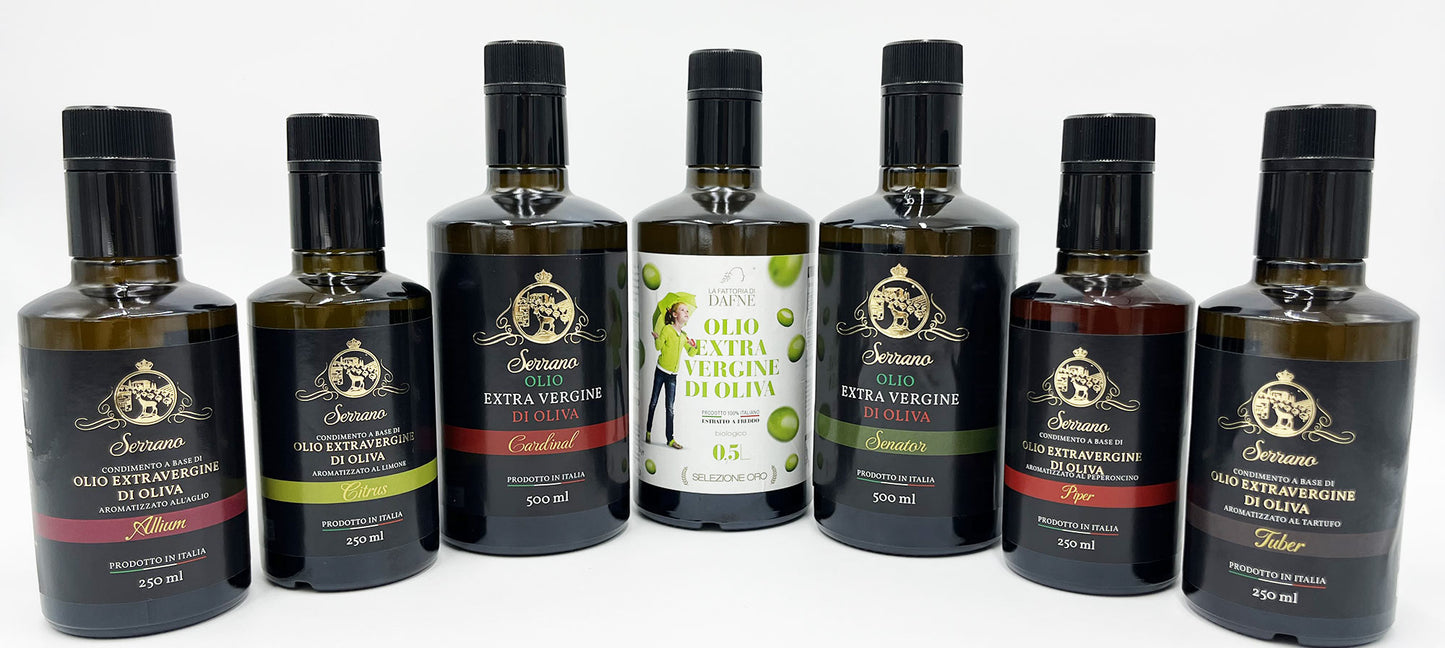
Once revered by the ancient Greeks and Egyptians, olive oil is still a cooking favourite, capable of adding flavor to meals without sacrificing nutritional value, and indeed enriching it with taste and nutrients.
Although olive oil is high in fat , the main types of fat it contains are monounsaturated fatty acids , which are considered healthy dietary fats. Consuming a small amount of a healthy unsaturated fat like olive oil before a meal helps digest food more slowly. Unsaturated fats also help reduce total cholesterol levels and normalize blood clotting. But even the healthiest fats are high in calories, so always eat them in moderation.
There are many types of olive oil on the market and in this brief guide we are going to see what are the elements to consider when choosing the best oil in order to stock your pantry with the best for your family.
Typologies
Refined Olive Oil
Refined olive oil does not have great nutritional value due to the numerous industrial processes it has undergone, which alter its flavour, smell and colour. This odorless and tasteless olive oil is the least expensive and the most suitable for frying.
Virgin Olive Oil
Virgin olive oil is an intermediate quality oil. It contains a fair amount of polyphenols, powerful antioxidants, but it is not considered as healthy as extra virgin olive oil.
Extra virgin olive oil
Extra virgin olive oil ( EVO oil for short) is the most desirable variety to buy because it is the purest and most authentic tasting of all the varieties . Much of the success of the Mediterranean diet is attributed to oil in its purest form, extra virgin olive oil. Cold-worked extract from olives, it does not undergo any refining process using additives or heat. Very rich in polyphenols, it is not recommended to use it as an oil for frying in order not to lose its nutritional characteristics.
We recommend savoring it in pasta sauces, salads, sauces, soups and dressings.
Tips for buying olive oil
Since extra virgin olive oil is much more valuable than most other vegetable oils , but also expensive and time consuming to produce, extra virgin olive oil fraud has become a widespread problem. In fact, many bottles labeled as extra virgin olive oil on supermarket shelves have undergone manufacturing processes that are not compatible with the wording "extra virgin".
To avoid falling victim to this deception, follow these general tips for buying olive oil.
- Choose an olive oil in a glass bottle, as they tend to be of better quality.
- Also check the back of the label to verify the provenance of the olive oil, if you want a variety produced in a specific country (such as Spain, Greece or Italy).
- Be wary of olive oils that are too green. While the green color could come from olives, it could also come from leaves that have been squeezed with them.
- Also be wary of extremely pale or yellow colored olive oil. The former could mean that it is tasteless, while the latter could mean that it is very stale.
- As for fresh olive oil, use it within a year of that date. (If the harvest date is not available, the expiration date is usually two years after the oil was produced).
- Extra "light" olive oil may be low in calories, but it is also highly refined and virtually devoid of flavor and color. If you're concerned about calories, use a higher quality oil, but in moderation.
- It's not always possible, but if you can, taste the olive oil before you buy it.
Serrano oil is produced with the highest standards of harvesting, pressing and bottling. Made in Italy, it is produced and bottled in Serracapriola, a municipality in the Alto Tavoliere in the province of Foggia.
